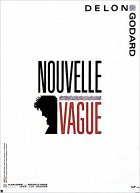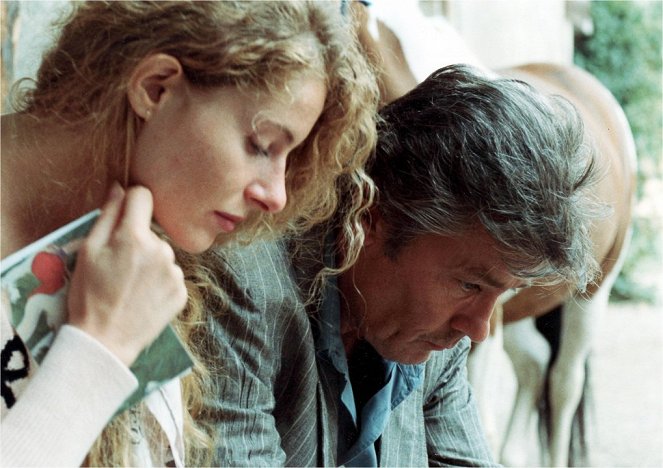Regie:
Jean-Luc GodardDrehbuch:
Jean-Luc GodardKamera:
William LubtchanskyBesetzung:
Alain Delon, Jacques Dacqmine, Christophe Odent, Laurence Côte, Steve Suissa, Maria Pitarresi, Domiziana Giordano, Raphaël Delpard, Laure Killing (mehr)Inhalte(1)
Passion: Jerzy ist gerade dabei, das erste der wieder zum Leben erweckten Meisterwerke zu filmen: Rembrandts "Nachtwache" (1642). Daß Godard mit diesem Gemälde beginnt, überrascht nicht weiter, schließlich handelt es sich dabei um eines der berühmtesten Beispiele ausgeklügelter Lichtdramaturgie, das die Geschichte der Malerei zu bieten hat. Das Bild dürfte Godard auch aus dem Grunde reizen, weil es so "unterbelichtet" ist. Die "Nachtwache" lehrt, wieviel Licht noch in der tiefsten Finsternis steckt. Sie lehrt sogar, daß man vor allem in der Finsternis auf Licht stößt. Godards Interesse scheint nicht darin zu liegen, das Bild lediglich zu verdoppeln. Was ihn antreibt, ist dessen Neuschöpfung, allerdings in filmischen Kategorien. An die Stelle des fixen Blickpunktes, den der Maler einnimmt, tritt die bewegliche Kamera, die unterschiedliche Positionen einnehmen, über die Bildfläche streifen und sogar ins Spektakel hineinfahren kann. (Verleiher-Text)
(mehr)Kritiken (1)
It is fascinating how Godard manages to make a film about a specific love whilst developing a discourse about love in general at the same time. It is fascinating how the camera movement combines in one direction from left to right diegetic and non-diegetic space (two rooms with two pairs of characters in one house with a view of the sea) only to connect both situations in the opposite direction through sound (the cawing of a seagull, which subconsciously settles in the viewer's perception because they are already forced to follow several other visual and auditory lines). An amazing recontextualization of visual and literary experiences and thoughts. Lubtchansky's camera is very nostalgic and strangely painfully sweet. /// Love means being an active random witness to one's own change: what is it like to look back on the time of greatest love, which we never actually experience as such, only in retrospect: "By seizing this beginning of happiness, we may be the first to destroy it." The deliberate involvement of legend Alain Delon and the self-reflective title New Wave is just another such "grasping" of a filmmaking era that has already passed (similarly, one can feel the sad Godardian irony in relation to the characters of capitalists and servants - only consciously hinted at in 1990, then unresolved - radicalism belongs to past decades).
()

